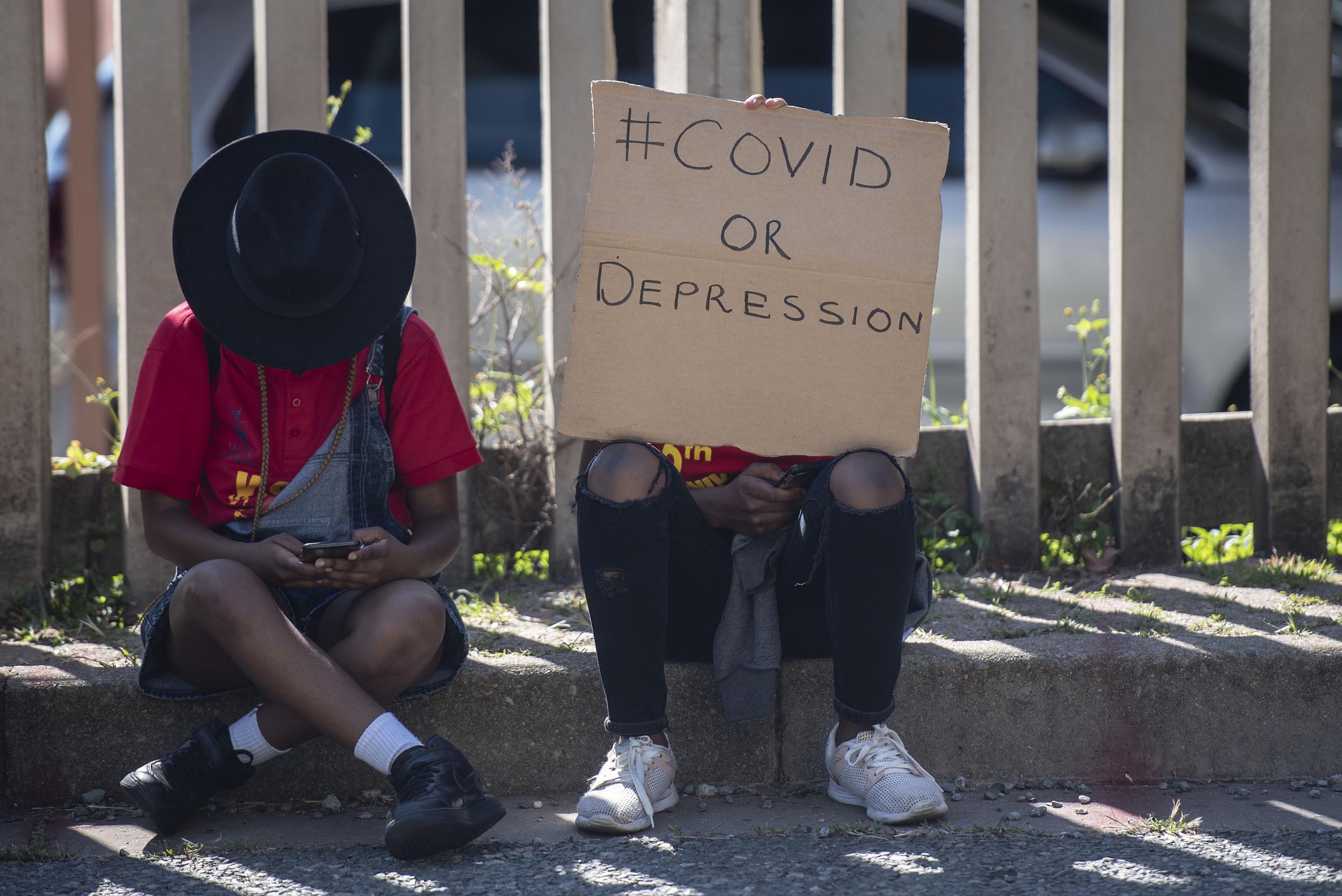While students of the country continue to fight for free education, they are also saddled with a continuous battle against mental health issues such as depression and anxiety.
According to experts these issues require urgent attention at community level, as leaving them untreated could lead to criminal acts and a never-ending vicious cycle.
Since the Covid-19 pandemic exacerbated mental health issues across all age groups, depression and anxiety are issues much more frequently seen among students in the country.
ALSO READ: Isolation, financial stress lead to lockdown mental health pandemic
These are further exacerbated by academic and financial pressures and a will to make their families proud, as many are first-generation tertiary students, said Millet Nkanyane, manager at ResLife, a wellness programme offered by student accommodation Respublica Student Living.
Connectivity and distance present new stumbling blocks
“Students have struggled with isolation from their peers and their lecturers and tutors, with fear of the virus and the complexities of social distancing added even more stress. However, we have also noticed how quickly many students have adapted to the changed conditions, embracing remote learning and finding new ways to connect…,” she said.
The biggest challenge brought on by the need for remote learning has been access to computers and connectivity. Many students could not afford to buy their own devices and depended on facilities offered on campuses, which were closed during the pandemic.
“Even for those that have their own devices, connectivity is not always consistent or affordable outside of the main urban areas, making it difficult to connect to online lectures, and to complete research. The other challenge with remote learning was the adaptation from contact to online which delayed the manner in which students would have responded to their studies as they first had to learn the various methods and platforms, they have access to,” Nkanyane said.
And now the recent student protests that have gripped universities across the country have further contributed to students’ stress and anxiety. Students have been calling on the scrapping of historical debts in order to progress in their academic careers.
ALSO READ: ‘Zuma is proud of protesting students’
“Many students are under immense financial pressure, and their participation in these protests emphasises just how desperate their situations are. The protests contribute to students’ stress and anxiety, whether they are directly involved in the protests or not.”
Urgent need for treatment
Treatment for mental health issues should be given at primary care level as soon as signs begin to show, said psychiatrist at Akeso Arcadia Dr Sizwe Mazibuko.
If certain mental health conditions are left untreated, they can lead to individuals committing crimes, leaving them to be assessed at a forensic assessment facility instead.
“When you consider this vicious cycle, it is ironic and tragic that we as a society have the power to assist the very people who we so often turn our backs on, leading to further issues in our communities and the abuse of human rights, something we as a nation have sworn to protect,” said Mazibuko.
While mental healthcare in the country has improved since the introduction of the Mental Health Care Act of 2002, there is still a long way to go before the rights of those suffering from mental health issues are recognised at a community level.
“This Act was put in place with the purpose of creating a shift in the system, from a custodial approach to encouraging more community care. This meant ensuring more appropriate care across all levels of society and easier access to treatment, highlighting discrimination and stigma, and eliminating unfair treatment and committals of those with mental illness,” said programme manager at Akeso Randburg Peta-Lyn Foot.
ALSO READ: Nicholas Ninow’s mental illness no excuse for rape, say many
For more news your way, download The Citizen’s app for iOS and Android.

